On World Environment today, climate change warriors suggest small, practical changes to incorporate in daily life to protect our fragile city’s ecosystem
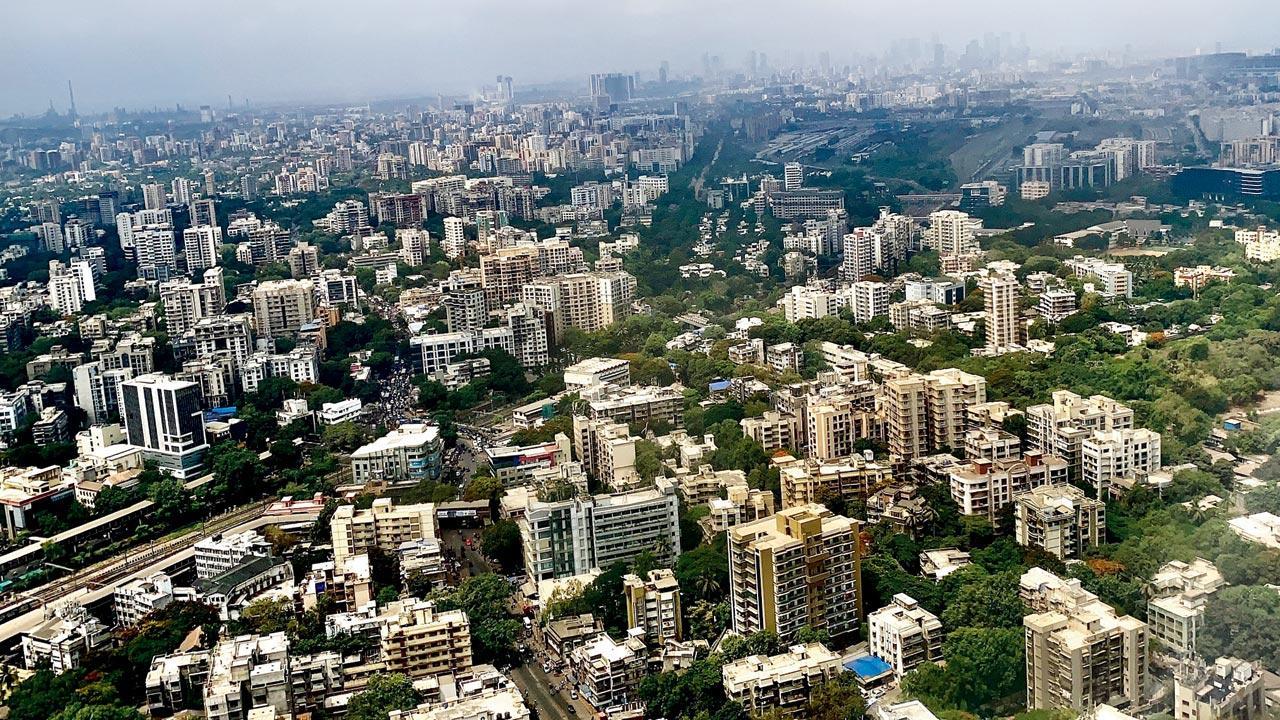
Pic/iStock
Individuals hold the key
ADVERTISEMENT
 Malhar Kalambe at a trash collection drive in Airoli
Malhar Kalambe at a trash collection drive in Airoli
Malhar Kalambe, founder, Beach Please
Over the last seven years, I have seen a shift in the behavioural mindset of people. I believe that beyond government action and policy making, individual citizen participation is key to climate protection and conservation. There are things at the micro level that individuals can contribute to. Whether that is segregating your waste, avoiding single use plastic or reducing carbon footprints, it all adds up. Segregating your daily waste is something that I would recommend everyone in Mumbai should do. The waste on all our beaches, mangroves and the Mithi River, is washed up from domestic waste. At that point, segregating the plastic from wet waste is neither physically possible nor financially viable. Hence, they end up in the landfills adding to the pollution. Separating them at home, and avoiding single-use plastic, are simple but effective steps that can contribute to the larger interests of the city.
Fishing for practicality
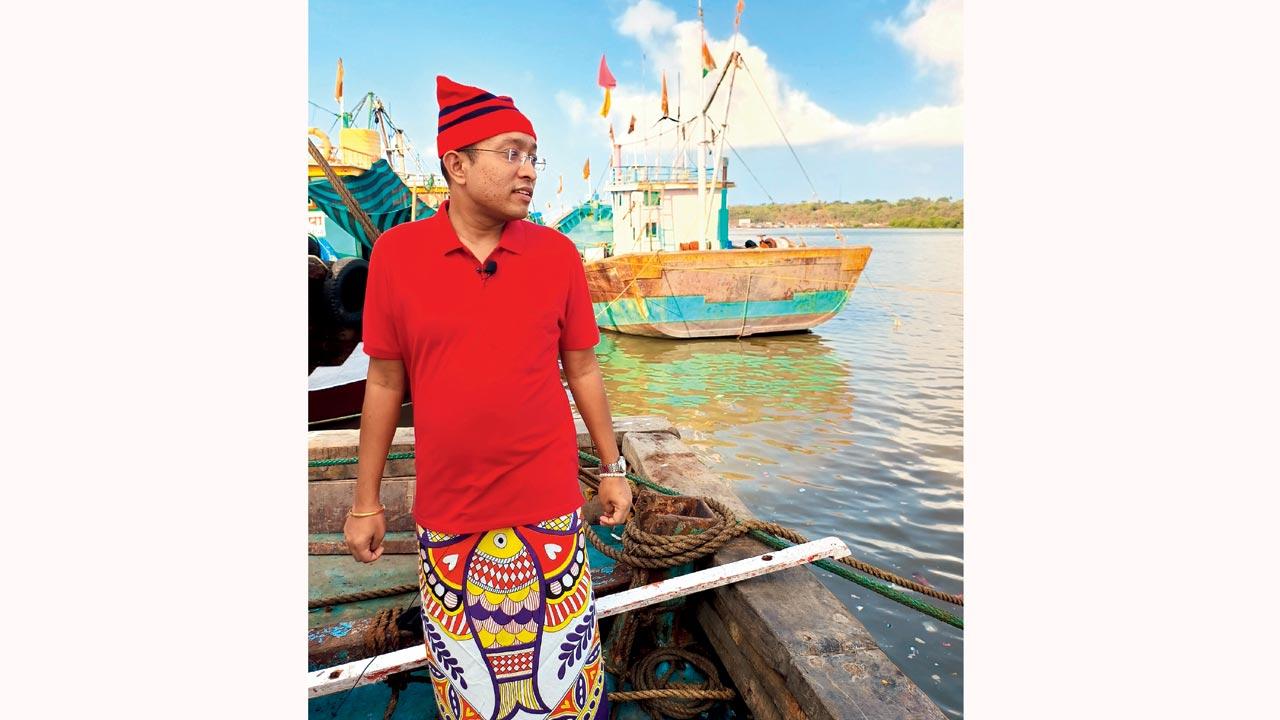 Mohit Ramle embarks on a fishing trip in Versova Koliwada
Mohit Ramle embarks on a fishing trip in Versova Koliwada
Mohit Ramle, president, Akhil Koli Samaj Sanskruti Sanwardhan Sangha
Deep sea fishing is officially banned in the monsoon because several species of fish breed during this time of the year. Avoid purchasing young baby-sized fishes from the markets during this period. Question yourself and the seller about their sources if you spot such fish in the market. Let the fish breed and grow in these months for future catch. Additionally, if you wish to contribute to sustainability, ditch the idea that only pomfrets, surmai, rawas are worth buying. Species like bombil, tarli, pala, bangda, kupa [tuna] also carry great nutritional value. If both sides implement these measures, we can attain sustainability in production as well as consumption.
Change starts at home
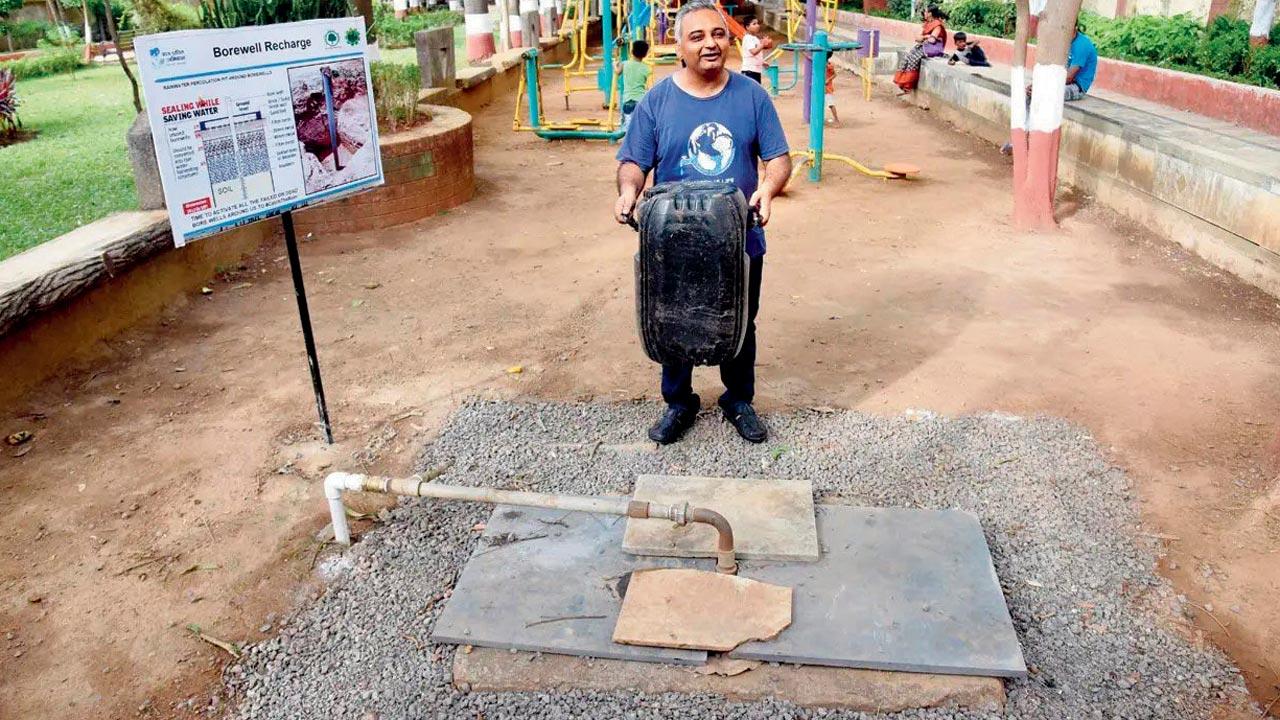 Subhajit Mukherjee at a rainwater harvesting site
Subhajit Mukherjee at a rainwater harvesting site
Subhajit Mukherjee, founder, Mission Green Mumbai
The concretisation of Mumbai is a major contributor to the heatwave as well as depleting groundwater reserves. Rainwater harvesting techniques must be implemented depending on space and water availability. Housing societies can install a basic percolation pit in the premises, or route the flow of water from the terrace into the borewell pipe to improve the moisture as well as reduce heat on the surface. We have installed 3,000 such systems across Mumbai, and are open to working on more. I urge people to collect water and use it for non-drinking purposes like washing clothes, flushing toilets, and mopping.
Let sustainability be the norm
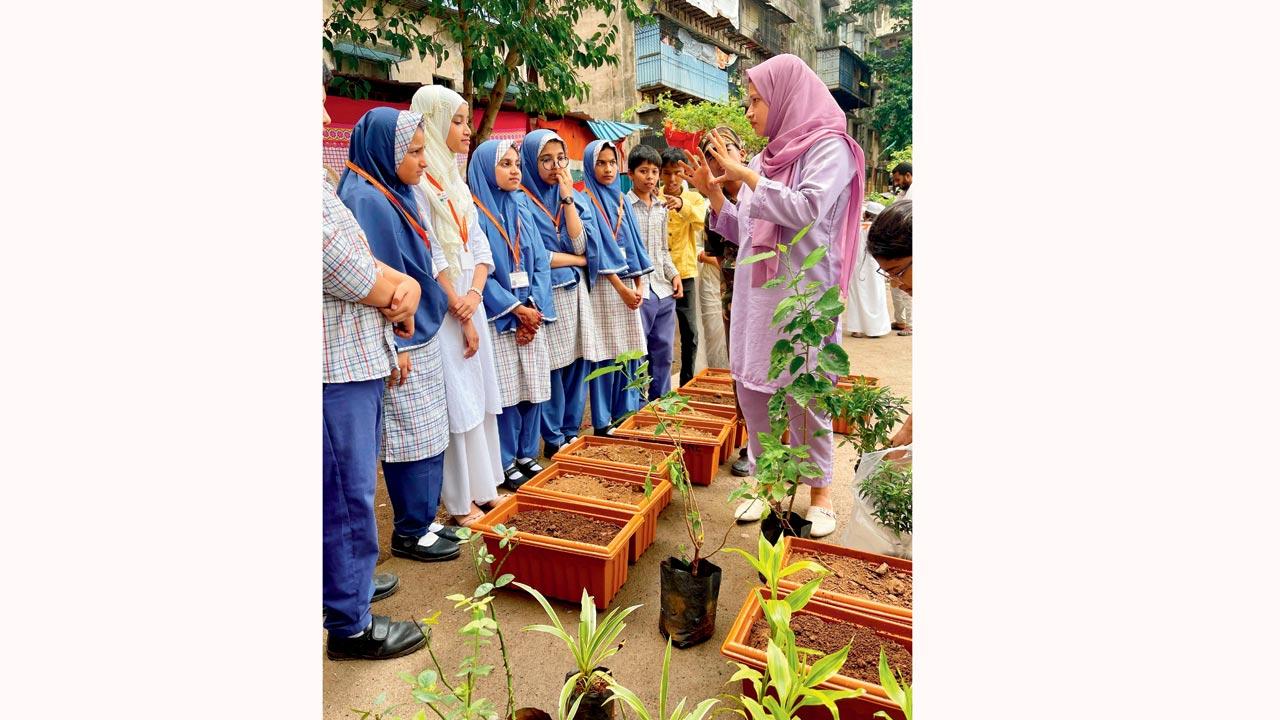 Zia Fatima interacts with children during a plantation drive
Zia Fatima interacts with children during a plantation drive
Zia Fatima, biologist, Jane Goodall Institute
Schools carry the responsibility of creating a positive and lasting impact on young impressionable minds. Green corridors can be established in schools, with a focus on local biodiversity. Grow gardens full of native plants without the fear of insects; instead, let them flutter around in your campus. Children must be made aware that it’s okay to reuse, recycle or use upcycled goods. Make sure you incorporate environmental education in their curriculum to introduce them to basics like waste segregation. The next thing you know, they will start analysing the waste generated by them, and start composting at home and in their communities. These actions not only instil eco-conscious habits, but also create a greener environment where sustainable practices come naturally.
Small steps, big impact
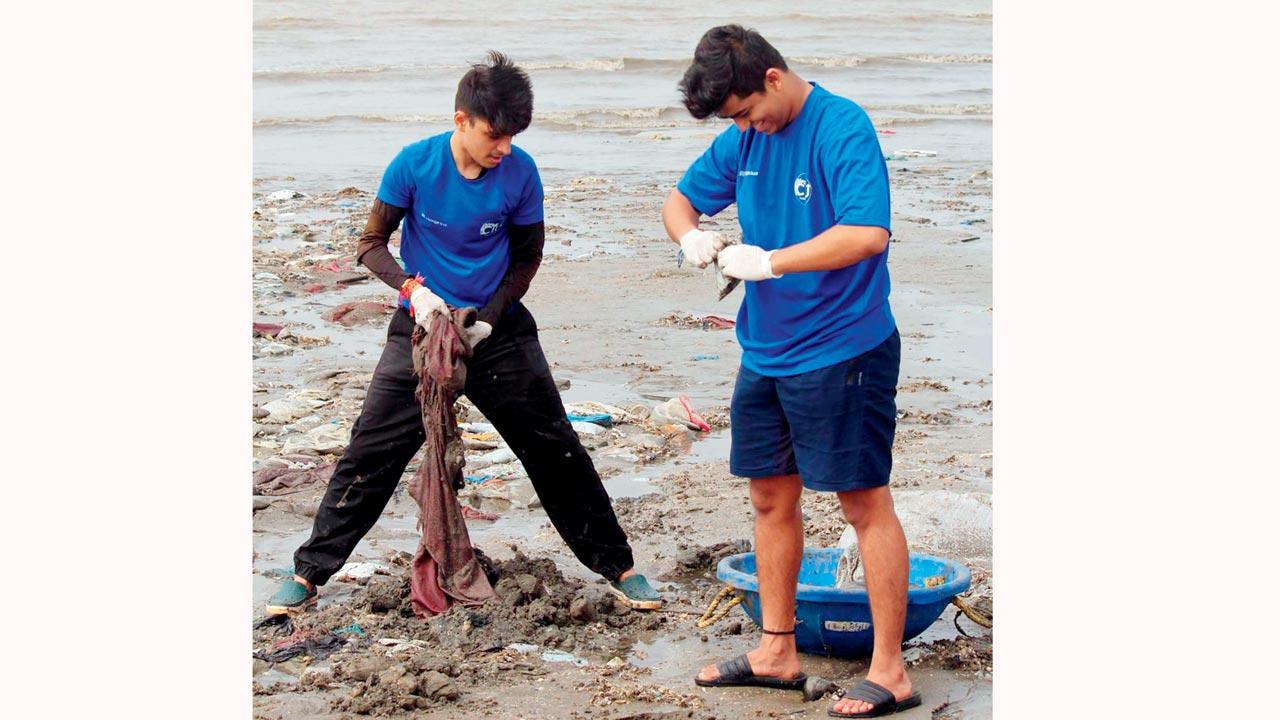 Shubh Mehta (right) at a cleanup in Girgaon Chowpatty
Shubh Mehta (right) at a cleanup in Girgaon Chowpatty
Shubh Mehta, co-founder, Change is Us
These are some changes you can make in your daily lifestyle to be a part of the battle against climate change. Utilise public transport instead of personal vehicles to reduce carbon emissions and traffic congestion. For short distances, opt to cycle or walk. It’s healthier and environmentally friendly. Your body will thank you. Carry a reusable water bottle and food containers to avoid single-use plastics. Always keep a foldable cloth or jute bag handy to avoid plastic bags for shopping, especially from vegetable vendors. Use digital payment methods and e-tickets to reduce paper waste. Opt for digital invoices. Use energy-efficient gadgets like LED bulbs, energy-saving power banks, and appliances with high energy star ratings.
Opt for sustainable brands that prioritise eco-friendly practices. Avoid falling for greenwashing and single-use plastics. Finally, support local produce by buying from farmers’ markets or nearby vendors to reduce carbon footprint associated with long-distance food transportation.
Think twice before you consume
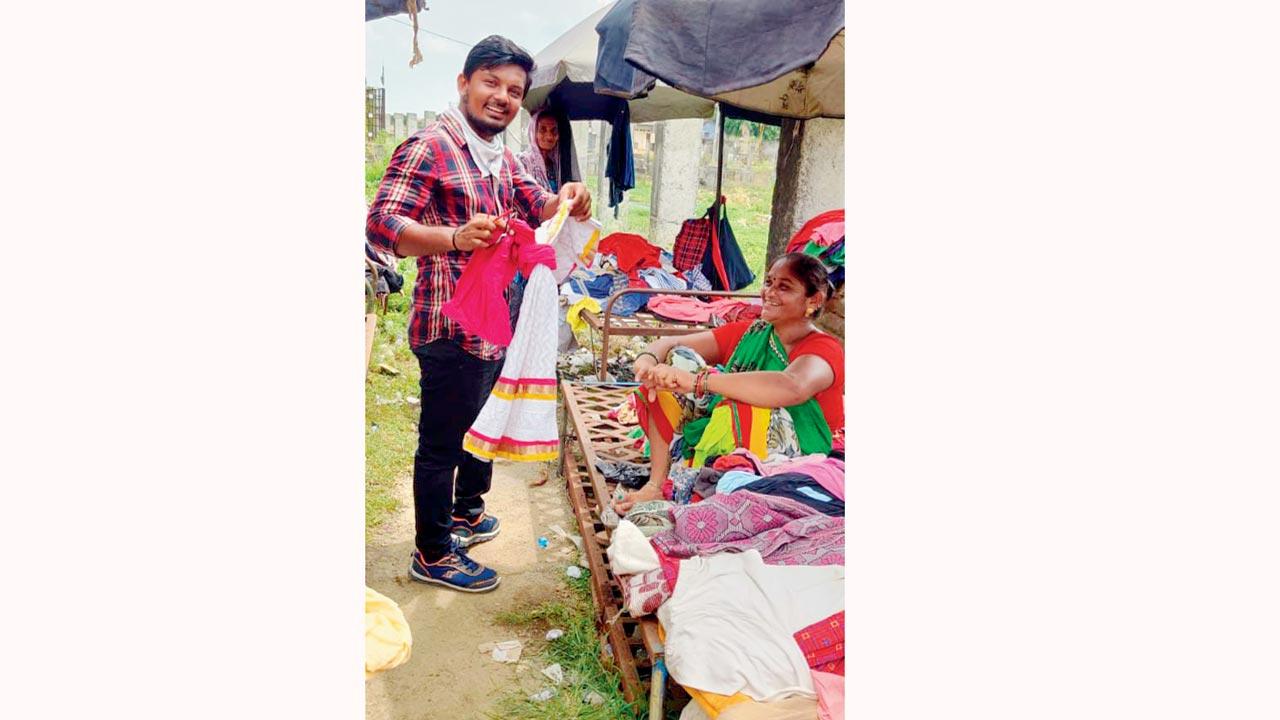 Vinod Nindrojiya inspects clothes with a Waghri community recycler
Vinod Nindrojiya inspects clothes with a Waghri community recycler
Vinod Nindrojiya, co-founder, Bombay Recycling Concern
Consume less of everything. This could be food, décor, products, and most importantly, clothes. Clothes are the first things that change with the slightest change in lifestyle, seasons, festivals, age or body weight. Mostly all clothes of wearable quality have a life span of four to five years. For every pair of clothes, make it a practice to use them for two years before buying a similar pair for a similar occasion. Then, reuse them for another two years. We have also now started door-to-door pick-ups of waste clothes. In case anyone wants to give the clothes away for recycling, they can drop a message on 8600293642, and we will send someone from the Waghri community, the environment warriors for textile, to collect them. Remember, that sportswear made of nylon or mix materials are the most difficult to reuse because they don’t absorb water and can’t be made into rags. Thus, they usually end up in the dumping grounds after a short life span.
By Devashish Kamble, Shriram Iyengar and Devanshi Doshi
 Subscribe today by clicking the link and stay updated with the latest news!" Click here!
Subscribe today by clicking the link and stay updated with the latest news!" Click here!







